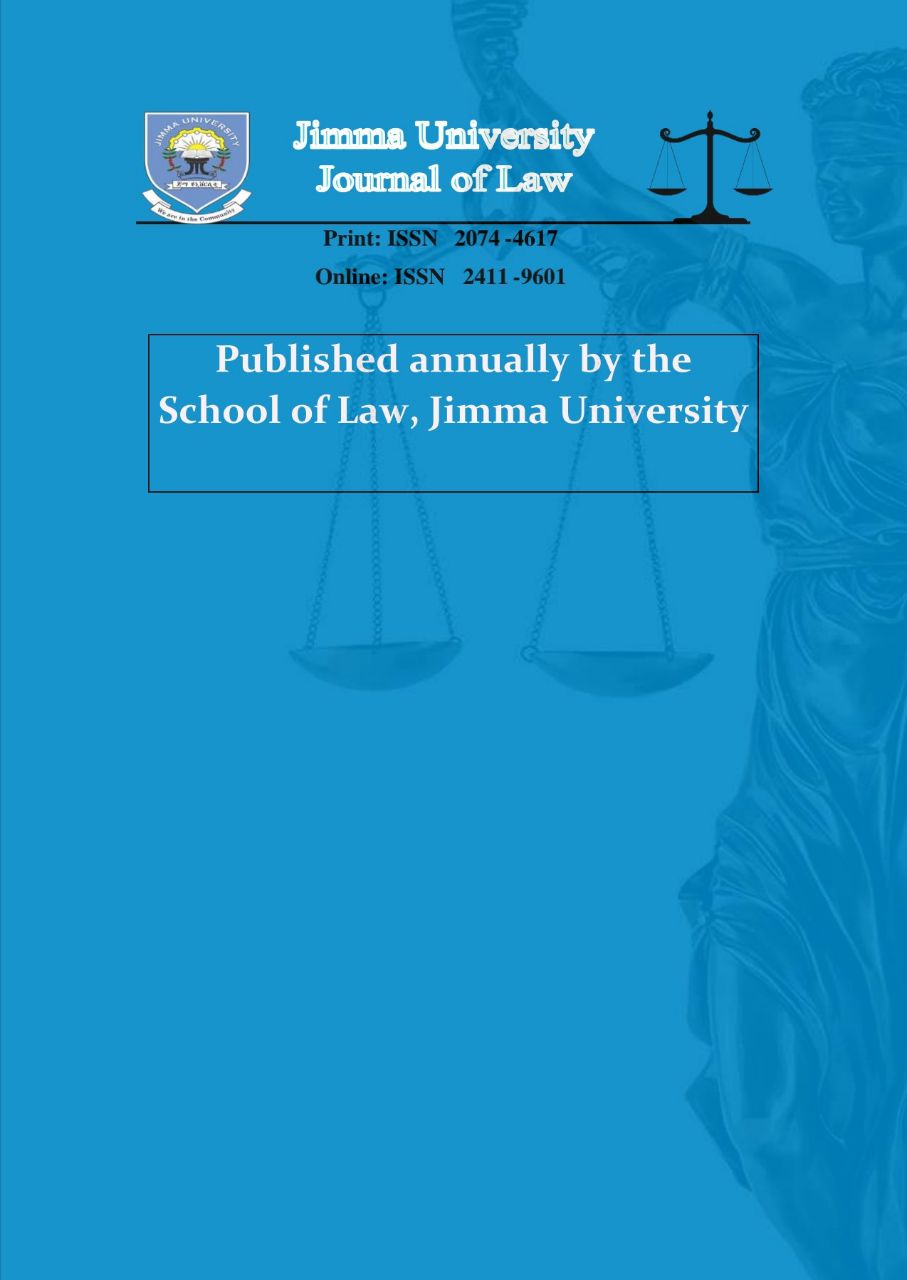Overview of the Development, Contents, and Limitations of Freedom of Religion Under Ethiopian and International Contexts
Abstract
The development of freedom of religion has progressed through several historical trajectories. Yet, the UDHR is unquestionably the breakthrough in the unfolding progression of international religious freedom. It sets the standard for the realization of the right to freedom of religion in the international context. Following the UDHR, several international and regional human rights instruments sanctioned the freedom of religion and made it their fundamental principle. In Ethiopia too, Freedom of religion has passed through several ups and downs in history. The current constitution of the country has recognized freedom unequivocally. However, there are always concerns in its practice at both national and international levels. Freedom of religion is highly valued and respected and demands special treatment. The necessity for special attention is drawn from the adverse impact on the individuals and the society that could arise from the violations of the right. In most cases, violation of the right befalls because of the lack of clear comprehension and knowledge of the content and limitations of the right, and the stakes of the valuation itself. The Respect, protection, and enjoyment of the right is determined by how the contents and restrictions of the right are understood and interpreted. Based on a descriptive research approach and a desk review method, this study attempts to emphasize the historical development, contents, and limitations of religious freedom in an international and national context.




